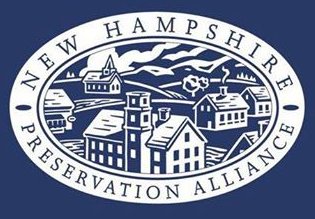2019 Seven to Save: Eagle Pond Farm
It was at Eagle Pond Farm in Wilmot that poets Donald Hall and Jane Kenyon shared a writing life, daily informed by the farm, its memories, and a deep sense of place and connection to place. This is where Don and Jane found their poetry, and here is what they wrote about.
The farm is 160 acres fronting on Route 4, descending to Eagle Pond and reaching up Ragged Mountain. The house, a cape typical of the area, is thought to have been built in 1803 and later expanded, with porch, dormers, and connecting sheds, probably at the time that Don’s family bought the farm in 1865. The intact barn is an early example of the Yankee Barn type with a lower level that incorporates an indoor silo that was quite innovative at the time of construction.
Don and Jane came in 1975, after his grandmother’s death, to live at the farm where Don had spent boyhood summers. His String Too Short to be Saved is not only a reminiscence of those summers but also a poignant narrative of place and the history of an early New Hampshire farm. Jane died there in 1995 and then Don in 2018. Both were New Hampshire poet laureates and Don was also appointed U.S. poet laureate. Both were recognized as major American poets and writers--read, appreciated, and celebrated nationally and internationally.
On learning at the beginning of May 2019 that the farm was about to be put on the real estate market and everything remaining in the house and barn would--in a week--be sold at two auctions and an estate sale, a small but powerful group came together to “do something,” says longtime friend and neighbor Mary Lyn Ray, “without quite knowing what that ‘something’ would be.” As a start, Lynne Monroe and Frank Whittemore, of Kensington, used their retirement funds to buy the farm and hold it, to provide some time to develop a preservation plan. Others in the group bought back what they could at the auctions and estate sale, so those things and their stories could be returned to the house and barn.
The intent of the group is to preserve the farm at Eagle Pond as both a local and national landmark and provide a place where a succession of writers can be in residence, immersed in the sense of place that wrapped Don’s and Jane’s days and their work. But the save has only begun. The new nonprofit will have to raise major funds to acquire the property, address physical concerns, and ensure endowment for stewardship and programs. “This is a big endeavor,” they say, “but we know that it matters. We like to think that instead of the farm leaving Don’s family, the family of the farm is growing.”




